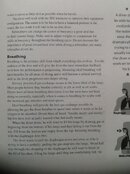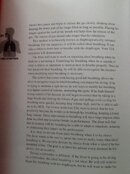in a nutshell, diving has gone from fun and interesting- to making me physically ill over the past year.
Thanks for the followup post. it added some good information.
"Diving" did not change but some thing or things have. Where you have prior good experiences and describe an active lifestyle I will discount there being an underlying medical issue but keep in mind I'm a medical zero. I'm suspecting a combination of balls are in the air.
The drysuit seal when resize helped some you said and that would certainly make for a bad day of diving. A drysuit can be nice but it adds a level of overhead to your diving and mess with your configuration for many dives before you have things felling and working just right. it can be a while before diving becomes that carefree experience you enjoyed while diving wet. Diving in a wetsuit or less is entirely predictable. The process of adaptation to a drysuit can be painstaking. For some it is a love hate relationship and can take the fun out of diving. That can put diving in a different frame of mind leading to a destructive attitude. Don't get me wrong, it can be a nice addition to diving but it can also be a stumbling block. How has your diving dry been overall as a skill & routine?
Someone needs to have the most air at the end of the dive so don't let the power breathers tell you something is wrong for that alone. You mention of "holding breath" is something of a concern. I'll say that I sort of pause but only to say I don't instantly bounce from inhale to exhale. Sort of like the "complete cessation of movement" you learned about in drivers education. Other than that you mention deep and slow. Those are both good words but the slow part can be too much of a good thing. I have had dives where I was especially mellow and relaxed with a good buddy and no wasted effort. Given the lack of exertion my breathing wold become very slow. When diving you are in a hyperbolic state so you body has a glut of oxygen molecules to pick from. CO2 on the other hand can still build up and give you a head ache. When you started diving you were probably a little less mellow and instinctively breathed plenty.
Combine some level of a CO2 headache, perhaps surge, wave action and jet lag with travel food and water and a few bouts of Montezuma's revenge are easy to write off.
The rented wetsuits are also suspect for being tight in the chest or neck. Unless the things were loose and baggy get your self a nice warm water suit to enjoy when warm water traveling. When you future as a dive seems in peril investing may be counter intuitive. Cost of suit/cost of trip, do the math..... One option may be a well fit rental suit that is fit by someone you know and trust.
I'm equally concerned with renting the regulator set and BC. An under performing regulator is probably not too likely (but possible) but the BC rentals have you constantly rejiggering your routine.
Dive gear, at least for me can be a funny thing. When you get a configuration that works, life is good. If I change something for whatever reason it can set up a run of domino's that has me tinkering with a lot of things and diving can be as much a chore as joy until things are dialed in again. Between the drysuit and rentals you may set yourself up for a parade of stress factors that combined with questionable respiration are taking the fun out of things.





